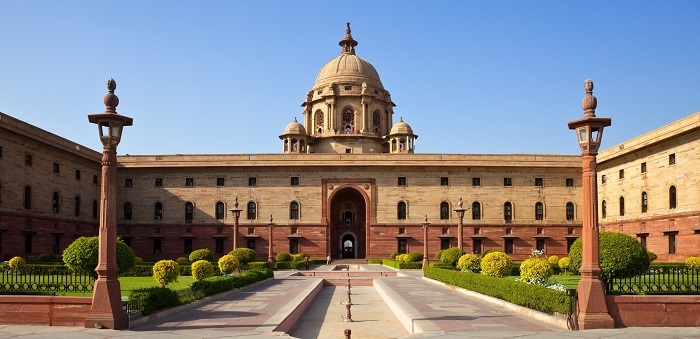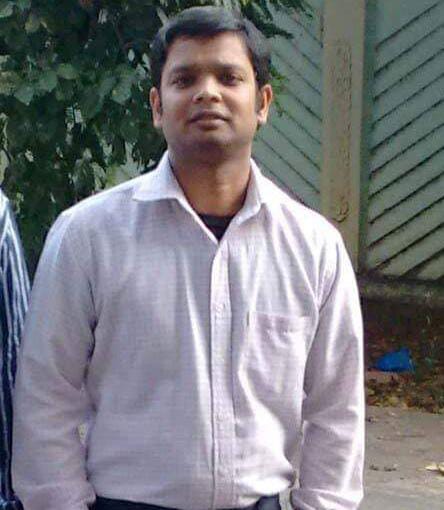
 Data Structure
Data Structure Networking
Networking RDBMS
RDBMS Operating System
Operating System Java
Java MS Excel
MS Excel iOS
iOS HTML
HTML CSS
CSS Android
Android Python
Python C Programming
C Programming C++
C++ C#
C# MongoDB
MongoDB MySQL
MySQL Javascript
Javascript PHP
PHPPhysics
Chemistry
Biology
Mathematics
English
Economics
Psychology
Social Studies
Fashion Studies
Legal Studies
- Selected Reading
- UPSC IAS Exams Notes
- Developer's Best Practices
- Questions and Answers
- Effective Resume Writing
- HR Interview Questions
- Computer Glossary
- Who is Who
Executive Power of the President
The President, who is the head of the state, by virtue of Article 53 of the Indian Constitution exercises the executive power either directly or through officers’ subordinate to him.

Who is the President of India?
The President of India is the nation's first citizen and the head of state. The President of India is the highest constitutional authority and serves as a representation of the integrity and unity of the country, according to the Indian Constitution. In India, the President is endowed with a broad variety of executive authorities that are necessary for the government and the country's efficient operation.
He is a part of the Union Executive. The two Houses of Parliament in India, along with the President, make up the Parliament, which is modelled on the British system and has a parliamentary form of government. The President of India holds the same office as the Queen or King of England, making him the nominal or legal Head of State. He has a wide range of authority as the Head of State, hence the Indian Constitution also includes various laws regarding the role of the President of India.
Who does Give Executive Power to the President?
The executive powers of the Union shall be vested in the President and shall be exercised by him either directly or through the officers’ subordinate to him in accordance with this Constitution, as provided for in Article 53 of the Constitution of India. As a result, the powers of the Union government are regarded as the powers of the President in India.
When the legislature deems it appropriate, it may grant the president extra executive powers under Article 70, which the president may then delegate to state governors under Article 160. The leader of the Union cabinet, the prime minister, shall assist and counsel the president in carrying out their duties. According to Article 74(2), neither the council of ministers nor the prime minister are legally liable for the advice they give to the president; rather, it is the president's exclusive responsibility to make sure that his or her duties are carried out in accordance with the constitution. Regardless of any recommendations from the union cabinet, the president, or their subordinate authorities are obligated by the terms of the constitution.
What are the Executive Powers of the President?
When there is a failure of the constitutional machinery in a state, he can assume to himself all, or any of the functions of the government of that state. The President can proclaim emergency in the country if he is satisfied that a grave emergency exists, whereby security of India or any part of its territory is threatened, whether by war or external aggression or armed rebellion.
The Indian Constitution grants the President a wide range of executive duties, as he or she serves as the executive head of the country. The President's name is used to make all executive decisions.
Head of the Union
The Union Executive is led by the President. All executive orders are issued in the name of the President. The President of the Union has the authority to act in the Union's best interests on all topics over which the Parliament has the authority to pass laws and enter into treaties and agreements. Power to make rules for the convenient transaction of business of the Indian Government.
Making Appointments
As head of the executive, the President makes the appointment of the following important persons −
The Prime Minister
Members of the council of ministers (On the advice of the Prime Minister)
Supreme Court and High Court judges
The Attorney General
The Comptroller and Auditor General of India
Governors of the State
The Chairman and member of the Public Service Commission
The member of the Finance Commission and Officials Commission
Chief Election Commissioner and other Election Commissioners
Special officers for Scheduled Castes (SC) and Scheduled Tribes (ST)
Commission to report on the administration of Scheduled Areas
Commission to investigate the conditions of backward classes
Special Officer for linguistic minorities
Normally, the President is required to call the leader of the political party that wins an absolute majority in the Lok Sabha in order to become Prime Minister. He does have some discretion on the matter, but only in very special cases. When no political party receives a clear absolute majority and, as a result, no Council of Ministers can be constituted without a coalition of parties, the President may use his discretion to choose the Prime Minister in a wise manner. India has entered a coalition-based political era. And it's possible that no one party will be able to win an absolute majority, forcing the President to use his discretion in naming the Prime Minister for some time to come.
Can ask to Prove Majority in Lok Sabha
Unless it is dissolved early for whatever reason, the Union Council of Ministers is typically in office for five years. The President must be satisfied that the majority of the Lok Sabha has confidence in the Council of Ministers. He may request the Council of Ministers to vouch for its majority in the Lok Sabha if he has any doubts. If the Ministry does not have the support of the majorities in the Lok Sabha, the President may also dissolve the Union Council of Ministers in accordance with Article 75(2) of the constitution.
Supreme Commander of Armed Forces
The President has the power to declare war and sign treaties since he or she is the head of state and the supreme commander of India's armed forces. In times of war or external attack, the President has the authority to call on the military forces and to command their deployment for internal security and the upkeep of law and order.
Administration of the Union Territories
The Union Territories are directly under the control of the federal government, and the President is in charge of managing them. The President has the power to enact laws and rules for the administration of the Union Territories. He has the authority to designate any place as a scheduled area and to oversee the management of both scheduled and tribal territories.
Powers Relating to the Council of Ministers
The President is subject to some restrictions on the use of his executive authority since he must act on the Council of Ministers' suggestion. However, he has the authority to return the council's recommendation for further review. Such a recommendation might or might not be accepted by the council. Therefore, although the President is the formal head of the executive branch, the Council of Ministers, led by the Prime Minister, actually holds the real power.
Summoning and Proroguing the Parliament
If required, the President summons, prorogues, addresses, sends messages to Parliament and dissolves the Lok Sabha, promulgates Ordinances at any time, except when both Houses of Parliament are in session.
Power to Veto Bills
If required, the President has the power to send back the Bills for reconsideration to the Parliament.
Ordinance-making Power
If situation arises, the President can promulgate an ordinance, especially when the Parliament is not in session.
Bill Related Powers
The President makes recommendations for introducing financial and money bills and gives assent to bills.
Diplomatic Powers
The President represents India in international relations and all the diplomatic relations with other countries are built in the name of the President. He or she also appoints ambassadors and high commissioners to other countries.
Pardon Powers
The President has the power to grants pardons, reprieves, respites or remission of punishment or suspends, and remits or commutes sentences in some specified cases.
However, the point that need to be noted here, all such executive powers, the president of India, cannot exercise suo moto but rather can exercise only on the advice of the Prime Minister and council of ministers.
Conclusion
The President of India is a constitutional figure with broad executive authority. The President is essential to how well the government runs and how smoothly things flow in the nation. The President's authority must be exercised in accordance with the Constitution's guidelines in order to maintain the stability and integrity of the country.
A number of the President's executive powers contribute to the creation of beneficial governing laws. As the head of the state, the president has the power to establish governing principles and advocate on behalf of Indian inhabitants. He is the first citizen of India and stands for the solidarity, honesty, and unity of the whole nation. He has been given the responsibility and authority to protect the Constitution.
FAQs
Q1. How is the President of India elected?
Ans. An electoral college, made up of elected representatives from the state legislatures and both houses of parliament, chooses the president of India.
Q2. Can the President of India veto a bill passed by Parliament?
Ans. Yes, a bill passed by Parliament can be overruled by the President of India. The measure has two options: it can be approved by the president and become law, or it can be objected to and sent back to parliament for further review. The President's veto can be overridden by Parliament by approving the same law again with a two-thirds majority in both houses.
Q3. How does the President of India exercise executive power in practice?
Ans. In practice, the Prime Minister-led Council of Ministers serves as the vehicle through which the President of India exercises executive authority. The Council of Ministers' recommendations is followed by the President, and its decisions are binding. The President does, however, still have the authority to make choices on his or her own in unusual situations.

